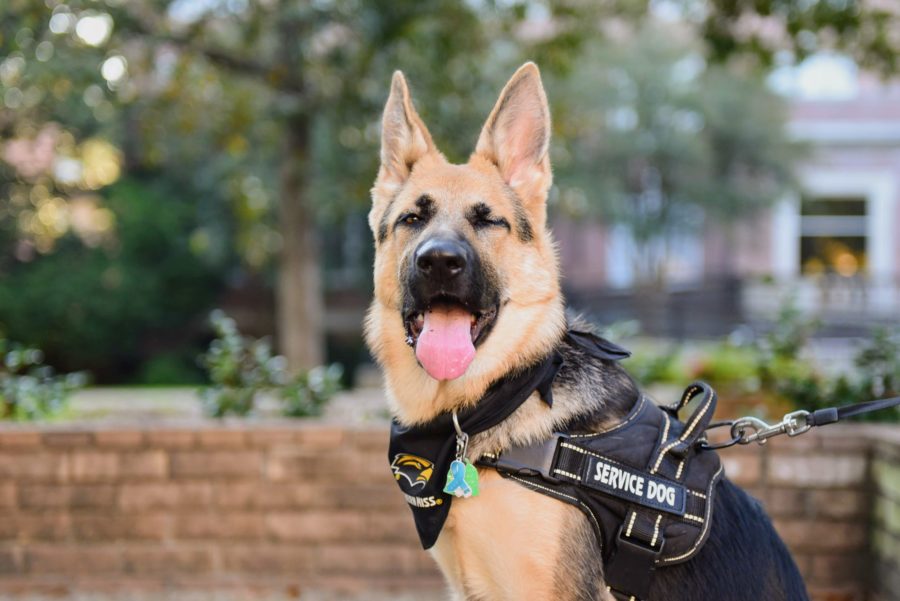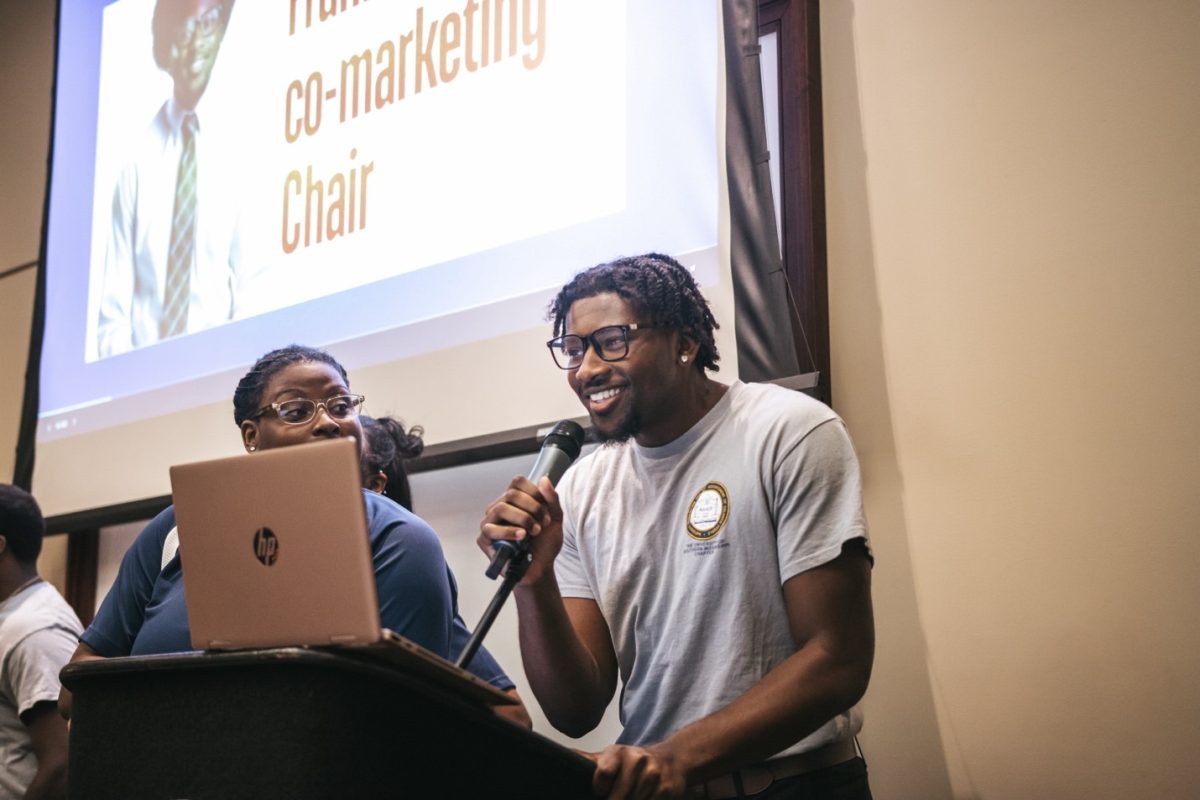Photo by Michael Sandoz
When senior psychology and criminal justice major Emily Bouzemann came to Southern Miss, she had no idea that she would develop post-traumatic stress disorder due to domestic violence from her ex-boyfriend. Likewise, senior public health education major Tiffany Alsbury did not know that she would be diagnosed with lupus as a freshman, then diagnosed with bipolar II disorder as a junior.
Both women originally got their dogs Allie and Molly as normal pets. However, after realizing they needed extra assistance to deal with their illnesses, Bouzemann and Alsbury chose to have their dogs trained and certified as service animals.
Bouzemann struggled with going out in public after she was diagnosed with PTSD, but her dog Allie is trained to notice her triggers. Allie has been trained as an emotional support animal for two years after Bouzemann’s therapist noticed how much she relied on her dog.
“I would have anxiety attacks being around certain groups of people, especially on campus. My ex still goes here, and she’s trained to bark at him when she sees him so I can walk in the other direction,” Bouzemann said. “Whenever she sees someone in a military uniform, she tucks her head under my chin to let me know she’s there.”
Bouzemann said that although Allie provides fantastic support, both she and Allie still have mental and physical scars from the abuse they experienced.
“Once when my ex and I were having an argument and he was yelling. While Allie was trying to get our attention, she hyperventilated and had a seizure, so now she only has one ear that works,” Bouzemann said. “We’re basically each other’s support.”
Like Bouzemann, Alsbury struggles with anxiety and being overwhelmed in public.
“I have lupus and bipolar II disorder, so I have panic attacks when I get overwhelmed. She will distract my face and apply pressure therapy against my chest,” Alsbury said. “It’s kind of like a dog version of being hugged.”
Alsbury has been diagnosed with lupus for three years and with bipolar II disorder for about six months.
“I originally got [Molly] because I was having symptoms of bipolar, but it takes a long time to get diagnosed,” Alsbury said. “Ever since my freshman year when I was diagnosed with lupus, it kind of overwhelmed my body so I got her as a regular dog for support.”
Prior to having Molly, Alsbury struggled with taking care of simple daily tasks.
“When I’m in big crowds of people, I get overwhelmed because I feel like people are looking at me and talking about me,” Alsbury said. “When I have a dog, it’s easier because everyone looks at her and not me. Even though that’s not what she’s there for, it kind of helps in different ways.”
Though senior psychology major Cassidy Wood does not require a service animal, she volunteers as a “puppy raiser” and teaches future service dogs basic commands and socialization. Her current dog Eva will go on to be a guide dog for a blind person.
“I’m a Delta Gamma, and we partnered with Service for Sight,” Wood said. “We’ve been volunteering with their local branch, Gallant Hearts, since before my freshman year. I really have a heart for dogs, so I asked to get involved more.”
Wood does not know how long she will be training Eva, but she said she is enjoying her time with Eva as much as possible.
“A lot of people have told me that their grandmother had a guide dog, or their father had a guide dog, and they’ll thank me for doing the training because I really don’t know the people I’m doing it for,” Wood said. “It’s really rewarding.”
Although the service animals provide essential assistance for these women, they do come with certain struggles.
“Some days I don’t want to take her, because I feel like she is a distraction for other students, and I don’t want to be that person,” Bouzemann said.
Alsbury said that people will often run up to her dog and pet her without asking.
“I get scared when people run up to her that she’s going to freak out,” Alsbury said. “Even though I don’t mind people petting her when I’m not struggling as much, asking is the proper thing to do.”
All three women agree that service animals provide necessary assistance for college students.
“I think service animals are super important because they help people with things that others don’t even see, things like disabilities and mental illness. I just think they help people lead a normal life that they wouldn’t be able to do on their own,” Wood said. “A lot of times, people don’t want to rely on another person, so having a dog gives them the independence that they need.”
Alsbury agreed with Wood and said service animals provide help with issues that no one else can see.


























